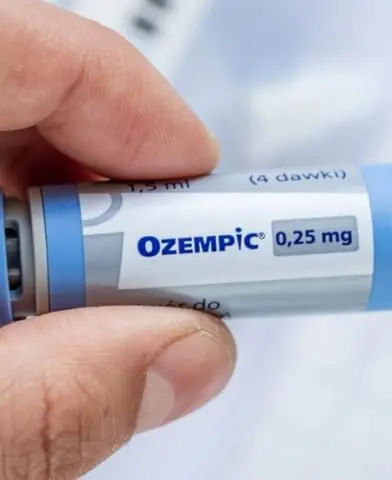
Alcohol Abuse Treatment Options
Clinically Reviewed by:

Alcohol use disorder (AUD), also known as alcoholism, is a chronic disease where an individual cannot control their drinking habits due to physical and mental dependence on the substance. Often, this alcohol dependence can disrupt daily life, cause, cause problems filling obligations at work, school, and home, and cause long-term health problems. The good news is that there are numerous treatment options and rehab centers available to help overcome this mental health condition and get back to living a healthy lifestyle. Alcohol rehab may involve a detox program, therapies that teach the patient ways to cope without the use of alcohol, mutual support groups that offer peer support, and medications that can help manage withdrawal symptoms. learn more about Alcohol abuse treatment options.
Risk Factors of Alcoholism
Numerous different factors can bring on alcohol problems. Every part of day-to-day life can affect a person’s risk of developing a substance use disorder such as alcoholism.
Below are some of the most common causes of addiction:
Mental health disorder: Being diagnosed with a mental illness such as depression, bipolar, traumatic stress disorder, etc., can increase alcohol dependence. This is because alcoholic drinks are commonly used as a way to self-medicate their condition and feel relief from their emotional pain. As tolerance grows to the substance, it becomes harder for the person to deal with their now co-occurring medical condition.
Family History: A history of heavy drinking and alcohol dependency in the family is a common cause of alcohol abuse. Studies have shown that genetics are responsible for roughly half the risk for alcohol use disorder.
Environment: The environment an individual grows up in and the environment they are currently in can play a significant role in the person’s risk of suffering from substance abuse. For instance, growing up or living in a stressful environment where people often fight or drink too much alcohol can significantly increase the chances of excessive drinking in the future.
Common Signs of an Alcohol Addiction
Symptoms of alcohol abuse can range from mild to severe depending on the number of symptoms the person is experiencing.
Some of the most common signs and symptoms include:
- The inability to limit the amount of alcohol you drink
- Having the desire to decrease your alcohol consumption but making unsuccessful attempts to do so
- The craving or urge to consume an alcoholic drink
- Failing to fill obligations at work, school, and home
- Continuing harmful drinking patterns even when it continues to impact your life negatively
- Cutting down on the amount of social and work activities that you attend
- Experiencing uncomfortable withdrawal symptoms like sweating, shaking, and nausea whenever you have not consumed alcohol
- Drinking alcohol in a dangerous situation, such as driving or operating other heavy machinery
- Need to consume more significant amounts of alcohol than before to feel the same effects that you used to
- Drastic behavioral changes
If you are experiencing these symptoms and worry you have an alcohol addiction try taking our free online quiz and compare your symptoms with those of alcohol use disorder.
Treatment Options for Alcohol Abuse
The recovery process typically begins with your primary health care provider, who will then refer you to a mental health professional. This professional will discuss alcohol addiction treatment options with you, residential treatment, and outpatient programs. Residential involves living at the treatment center for a period where the patient has 24/7 access to medical care, and outpatient programs require the patient to return for scheduled sessions. After going through a detox program where the patient rids their body of alcohol, the next step is receiving treatment in an alcohol rehab program.
Below are some of the most effective treatments for alcoholism:
- Behavioral therapy: These therapies can begin with family members coming together with professional help from a treatment provider or therapist for an intervention counseling session in situations where the patient is not acknowledging their drinking problem. Another type of therapy is cognitive-behavioral therapy. These sessions aim to change how a person deals with thought processes that lead to alcohol misuse and involves learning how to manage stress.
- Medications: There are currently three medications used alongside therapy for alcoholism that is approved by the United States Food and Drug Administration. This form of treatment includes Naltrexone which can help people avoid heavy drinking, Acamprosate, which aids in maintaining abstinence, and Disulfiram which helps manage withdrawal symptoms.
- Mutual support groups: It is highly recommended by health professionals that patients attend peer support group counseling sessions. This type of group therapy is a safe place to help encourage and motivate the individual to stay on the right path and maintain abstinence. One example of these groups is Alcoholics Anonymous (AA), where people gather to discuss personal experiences related to their addiction which can be a great support system for a patient struggling to stay on the right path.

Frequently Asked Questions (FAQ)
There are many different treatment options when it comes to alcohol abuse. Typically, a patient will begin their recovery journey through a detoxification program that involves ridding their body of the substance. After this, the individual will most likely enter some sort of behavioral therapy so that they can find new ways to cope with and manage their condition. These types of talk therapy involve sessions with a therapist that help the patient understand their behaviors and how to develop better drinking patterns. After they have completed treatment for their alcohol problem, medical professionals suggest attending peer support groups which usually involve sessions with a group of people struggling with a similar situation. These support groups can play a huge role in a person staying on the right track and maintaining their sobriety.
The conversation typically begins with your primary doctor, who will then recommend you to a mental health professional who can better assist you. From there, the professional will discuss alcohol treatment programs with you. For alcoholism, patients can choose between an inpatient treatment program that involves living in the treatment facility for some time with around-the-clock medical supervision or an outpatient program that requires the patient to return for therapy sessions on a scheduled basis.
Medication-assisted assisted treatment (MAT) is often used to treat substance use disorders, counseling, and therapies. The most common medicines used for the treatment of alcohol abuse include disulfiram, Acamprosate, and naltrexone, all approved by the U.S. Food and Drug Administration. These medications do not provide a cure for substance use disorders but can aid in the recovery process alongside the other forms of treatment. This treatment approach has been shown to increase the patient’s survival, decrease substance abuse, increase retention in medicine, and increase the patient’s ability to gain and maintain employment. It can also improve birth outcomes among women who struggle with substance use disorders.
A person should seek alcohol addiction treatment when they cannot control their drinking patterns and behaviors, which negatively affects their life. When alcohol dependence impacts your ability to fulfill obligations at work, school, and home, it may be time to find treatment for the condition. Most of the time, those who struggle with addiction are not even aware they have a problem, so family members will typically hold an intervention where friends and family can come together and express their concerns for the individual in hopes for them to acknowledge the problem.






 100% Confidential
100% Confidential